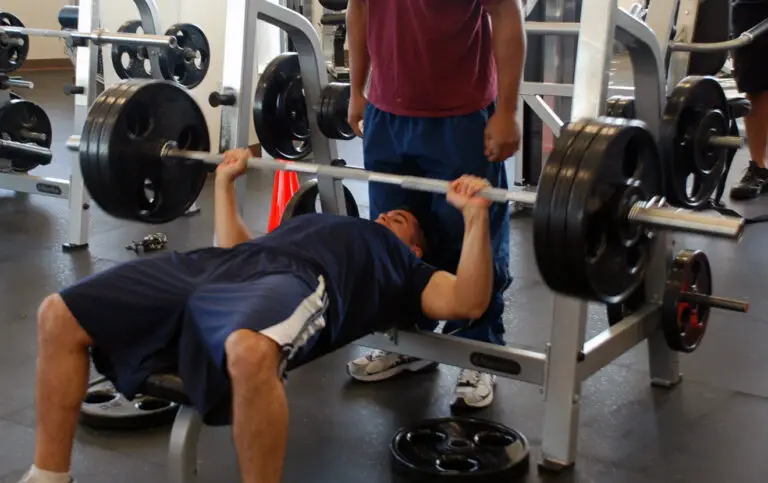Discover the mind-body approach to sustainable weight loss
“The journey of a thousand miles begins with a single step—but that step starts in your mind.”
Have you ever found yourself staring at your reflection, frustrated after trying yet another strict diet that left you feeling mentally drained and physically unsatisfied? This scenario plays out countless times in weight loss coaches‘ offices around the world. You’re not alone.
While many weight loss approaches focus solely on calories and exercise, they often miss a crucial piece of the puzzle: the powerful connection between our minds and bodies. Research and experience from successful weight loss journeys show that sustainable results come from nurturing both mental and physical well-being.
Understanding the Mind-Body Connection in Weight Loss
“Your mind might be the missing piece in your weight loss puzzle.”
Let’s talk about something that doesn’t get enough attention in the weight loss conversation: the way our minds and bodies work together. When you’re stressed, your body releases cortisol, often called the stress hormone. This isn’t just about feeling anxious—it can actually make losing weight harder. Your body goes into preservation mode, holding onto fat stores and often triggering cravings for high-calorie comfort foods.
Ever noticed how a tough day at work can lead to mindless snacking? That’s your brain seeking comfort through food. Emotional eating isn’t about lack of willpower; it’s a coping mechanism our minds have developed. The problem is, this cycle can create a frustrating loop: stress leads to emotional eating, which leads to weight gain, which causes more stress.
Physical Strategies That Support Mental Well-being
“Movement is medicine for both body and mind.”
The good news is that physical activity isn’t just about burning calories. Regular movement, especially activities you genuinely enjoy, triggers the release of endorphins, your body’s natural mood boosters.
Here’s what really works, and why:
- Joy-Based Movement: Find activities you actually look forward to (yes, dancing in your living room counts)
- Nature Walks: Just 30 minutes can reduce stress hormones by up to 10%
- Gentle Yoga: Combines physical activity with mental clarity
- Strength Training: Builds confidence along with muscles
- Daily Stretching: Creates a mind-body connection moment
Sleep is very important. Think of sleep as your weight loss superpower. When you’re well-rested, your body better regulates hunger hormones, and you’re more likely to make mindful food choices. Aim for 7 to 8 hours of quality sleep, and you’ll notice a difference in your energy levels and food cravings.
Mental Strategies for Sustainable Weight Loss
“Your thoughts shape your actions.”
Developing a healthy relationship with food might be the most important step you’ll take. Instead of seeing foods as ‘good’ or ‘bad’, practice mindful eating. Take time to really taste your food, eat without distractions, and listen to your body’s hunger and fullness cues.
Here’s a mental wellness toolkit:
- Practice self-compassion (you wouldn’t shame a friend, so don’t shame yourself)
- Set realistic, achievable goals (think progress, not perfection)
- Celebrate non-scale victories (more energy counts as a win)
- Develop stress-management techniques that don’t involve food
- Create positive morning and evening routines
Creating Your Balanced Approach
“Balance Is Your Secret Weapon.”
Start by combining simple physical and mental practices. This might mean starting your day with a five-minute meditation, followed by gentle stretching, or taking short walks during stressful moments instead of turning to snacks. Create an environment that supports your goals—stock your kitchen with nourishing foods, but don’t completely restrict foods you enjoy.
Here are some smart support strategies:
- Consider working with a weight loss coach for personalized guidance
- Connect with an anxiety therapist if emotional eating is a challenge
- Join supportive communities (online or in-person)
- Keep a mood-food journal to spot patterns
- Create a positive home environment that nurtures your goals
Moving Forward: Your Action Plan
“Every healthy choice is a vote for the person you’re becoming!”
The path to sustainable weight loss isn’t about perfection; it’s about progress.
Here’s your starter kit for success.
- Choose one small habit to change (just one)
- Plan tomorrow’s meals with both nutrition and joy in mind
- Set up your environment for success
- Schedule ‘me time’ for stress management
- Connect with someone who supports your goals
Remember, sustainable weight loss isn’t just about changing your body; it’s about creating a balanced, healthier lifestyle that supports both your physical and mental well-being. Start small, be patient with yourself, and focus on progress over perfection. Your journey to better health doesn’t have to be perfect; it just needs to be consistent and kind to both your body and mind.
“Your future self is watching you right now through memories. Make decisions that will make you proud.”
Ready to begin? Start with one small change today, whether it’s taking a mindful walk, trying a new healthy recipe, or simply paying attention to how different foods make you feel. Your future self will thank you for taking this balanced approach to health and weight loss.







